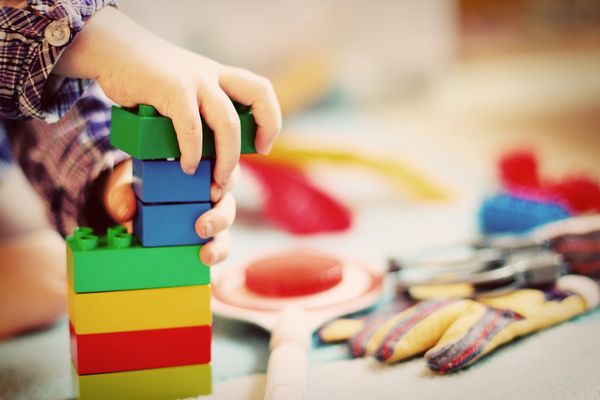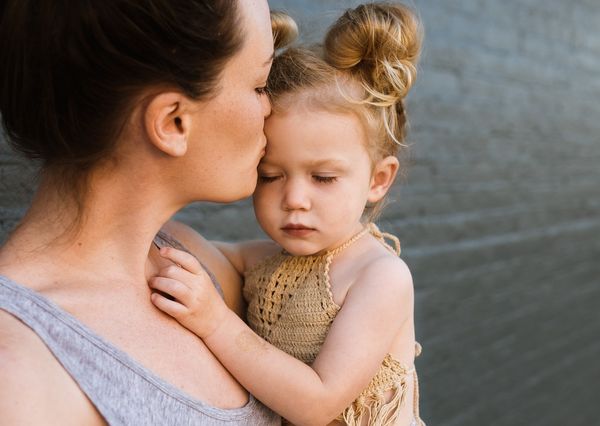Level Six - Understanding. Hierarchy of Attachment.

Before delving into the sixth level of attachment, I want to paint a theoretical picture of the hierarchy of attachment. This hierarchy significantly influences how our children feel our love.
It boils down to the fact that children only thrive when they are in a dependent position. Let me explain. In any relationship, there are two options: we either take care of someone or we let someone take care of us. In other words, we are either in the alpha position, where we take responsibility, organize, lead, teach, and nurture, or in the dependent position, where we receive care, follow advice, adhere to a given direction, learn, and surrender our responsibility to the caregiver. If you're hearing this for the first time, you might be surprised by what Gordon Neufeld says: there are no equal relationships. And this applies not only to parent-child relationships but also to relationships with partners, friends, and colleagues. In every moment of time, we are either in the alpha or in the receiving position. In harmonious relationships, we constantly exchange roles with our loved ones depending on the zone of responsibility, resources, self-feeling, and so on. We give the opportunity to take care of us, and we are ready to take care of our better halves when we see such a need in them.
In relationships with children, things are different. With them, we are always in the alpha position. At least, we try very hard to be. And this is irrespective of how many years the child has, be it 2 or 22. We are the ones responsible for the relationship with our children, filling them up and creating conditions for their full development. We build a reliable foundation in which they can always feel secure and to which they can always return.
It all sounds very simple and logical. However, the problem is that more and more "alpha kids" are emerging in our time. Children who get stuck in the alpha position. They try to control everything, want to make all the decisions, and they give instructions on who and how should take care of them. Or they become very accommodating and obedient, ready to read our desires and needs, taking care of our well-being, and fearing to upset us or create any inconvenience.
Either of these two options is very detrimental because, in such cases, children do not feel our care and fulfillment. This means they are expending their energy in the wrong direction—instead of developing their potential, they are working on their relationship with us.
Even if we fulfill all their requests and orders, they still remain dissatisfied. This fact might be surprising, as we are doing everything they ask. However, understanding the hierarchy of relationships puts everything in its place, and the answer becomes apparent: a person in the alpha position cannot be fulfilled. To feel care and accept it, children need to be in the dependent position. However, the brain of "alpha kids" cannot switch to this position because it perceives it as unsafe.
Why does this happen? Sometimes the cause is weak alpha presentation by parents. Perhaps in their childhood, they couldn't find their own alpha, making it challenging for them even with their own children now. Maybe they feel inadequately informed (though, honestly, all parents have what it takes to be the best answer for their child). Perhaps taking responsibility is difficult for them, and they avoid it in various ways. Maybe they believe in equal relationships between parents and children, which, as I mentioned earlier, don't exist. Or maybe there's a very strong alpha-grandma nearby, preventing parents from finding their own alpha. Additionally, highly sensitive children or those placed early in group settings often end up in the alpha position. The causes of the alpha complex in a child can be numerous. But the solution is always the same.
Theoretically, it's simple, but in practice, it's incredibly challenging. All parents need to do is seek and maintain their alpha position. Extend an invitation to the children to exist in our lives, one they can't refuse.
But, I repeat, in practice, it's incredibly tough. Our eldest son is highly sensitive, and I, myself, have problems finding my own alpha. Therefore, my son occasionally gets stuck in the alpha, and from personal experience, I know how challenging it is to return to the natural hierarchy in relationships with children. It's constant work, a constant search, and a constant dance. It's not easy, but the results are incredible. And in those moments when a child lets go of their alpha and trusts the parents, it becomes much easier for us to raise and care for such a child. And they blossom themselves.
In one article, I won't be able to explain and advise on what to do, but I want to give a sense of the path worth exploring. Firstly, never go "head-to-head" with an alpha child. The brain didn't choose this mode for no reason, and we need to respect nature's work, doing its best in the conditions it has. It's better to seek our alpha not in confrontation, not in a "who's the boss" attitude, "you have to listen to me" (though these emotions do arise because alpha kids can touch our alpha quite deeply), but in caring and responsibility. Show the child that we care, that we love them in any situation and behavior. Take responsibility for the child and their behavior; don't say, "It's your fault," "You didn't nap, so now it's your fault that you're sleepy." No, we are responsible for everything; we find options and solutions. Try to give the child a sense of security, the feeling that we are on the same side and always ready to help and support. Avoid using punishments, timeouts, restrictions, or any other divisive discipline. Cover all negative behavior with, "I still love you. I'm looking forward to reading our book together tonight/going ice-skating on Saturday/baking cookies tomorrow." Don't tell children about our problems, the emotions they evoke in us, or say that it's difficult for us or we don't know what to do with them. Avoid putting them in situations where they have to make many decisions; instead, try to guess their decisions and offer what they need without unnecessary questions.
And we use play. Play to reduce resistance in everyday things. Play to give an outlet to all those emotions that alpha kids have so much of. Play where they can express their alpha: control, make rules. Play where they can add care to their alpha: take care of toys, feed them, cure them. Allow them to take care of plants, animals, younger children, so their alpha is directed not at us but at those who naturally need care.
And through play, we can gradually reclaim our own alpha: games where we give tasks, where we lead, where we are queens, and they are knights. Where we are moms, and they are little animal-kids, and we can safely take care of them; they can be small and defenseless.
With this, I conclude the discussion on the hierarchy of attachment and move on to the practical part: the last level of attachment.
The sixth level of attachment starts developing around the age of six and continues beyond.
Attachment at the cognitive level, psychological closeness. It's the awareness that you are known. This level is profound, filling you uniquely and giving a sense that you are loved for who you are. Parents want to know the real you, recognizing your uniqueness and value. It's a beautiful level, but it's very delicate. A few careless comments, a couple of inappropriate jokes when a child shares something personal, notes in response to the secret a child brought — and that's it, the child closes up and doesn't want to share what's dear and important to them with the parents. That's why not all children, and later adults, develop attachment to this level. I think we've all experienced the vulnerability of sharing something special and not seeing acceptance. I remember bringing my notebook of poems to the teacher in middle school and receiving my poetic attempts crossed out in red ink in response. I don't think I tried writing poetry again for at least 20 years.
But there's good news — the potential to develop attachment at all six levels exists in all children at any age. So, even if something doesn't work out immediately, there's always a chance for development and strengthening the connection with our children.
How can we nurture our children at this level?
The sixth level is the level of secrets. It's crucial for children to tell us their secrets, their excitements. Our job here is simply to accept them without judgment. When my older son confesses to me that he ate an extra candy, I don't scold him. Instead, I hug him and say that I understand how sometimes it's hard to resist something sweet.
So, I'll repeat once more that acceptance, willingness to listen, and understanding their emotions and experiences behind their behavior deeply fulfill children at this level. They need to know that we won't laugh, judge, or use their secrets against them, especially vulnerabilities and feelings they share.
Games involving secret languages, alphabets, and messages might be relevant at this level. Special secret signs.
Children are delighted when we share our own secrets with them, talk about our memories, dreams, and fantasies.
At this level, it's essential to show that we know our children very well. Prepare their favorite meals, buy things they love, make sure their favorite clothes are always clean, and it's even better to have two pairs of their favorite pants :)
Give gifts that show we know their preferences and desires. Arrange unexpected surprises.
In daily life, constantly use elements of recognition. "I know that you're usually tired in the evening, so I'll bring you tea in bed," "I know that math is challenging for you, let's try to figure it out together; I have a bit more free time today," "I know you don't like the smell of fish, so I'll call you to the kitchen after I've cleaned everything up." It's so pleasant when you're understood without words.
Show that we understand their emotional states, talk about our own experiences. "I see that you're feeling sad today; I feel that way sometimes too." Agree that such acceptance invites opening up one's heart and soul to someone willing to listen.
In general, practice active listening, where we focus on hearing the child and treasure something new we learned about our little ones today in our mental treasure chest.
Attachment Theory: Why It Matters for You and Your Child
Level One Attachment: All About the Senses.
Level Two - Similarity: Continuous Contact and Possession.
Level Three: Proactive Connection and Redirecting Behavior



